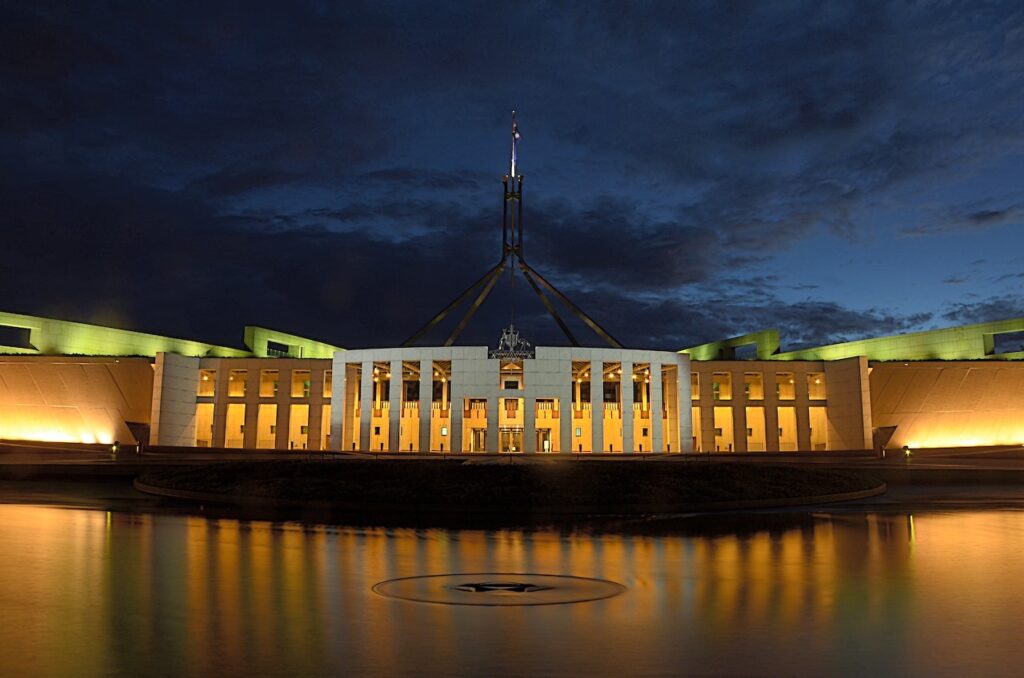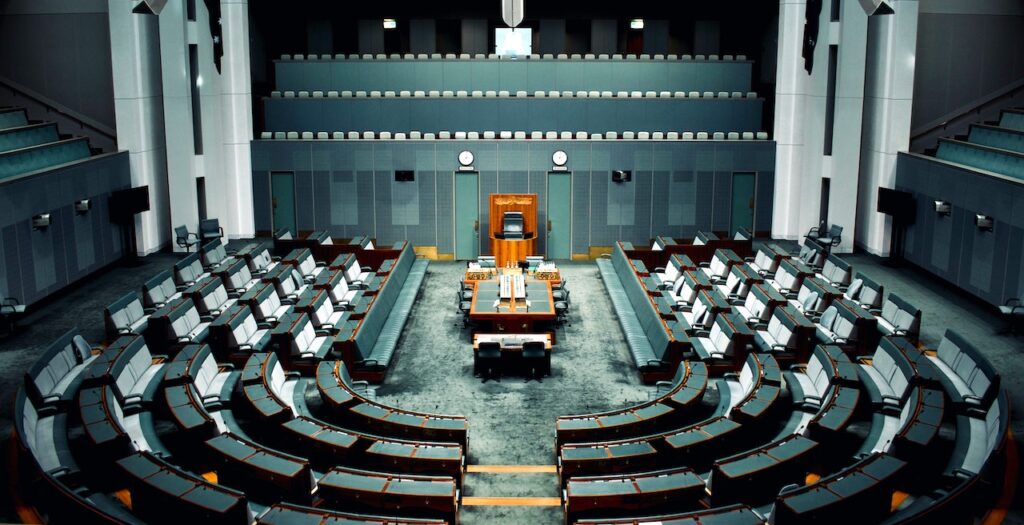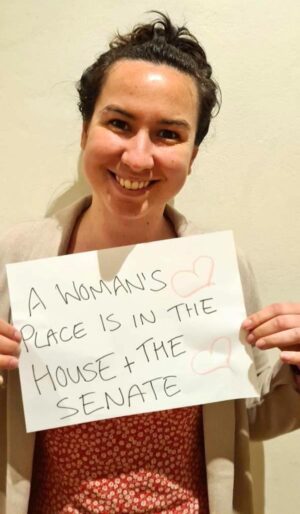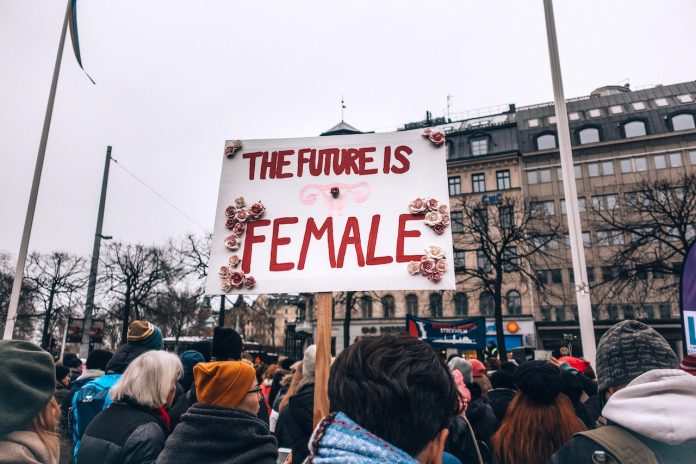Slut-shaming, sexual harassment, body-shaming, double standards, relentless media scrutiny, sleaziness, and inflexibility. These are the things women in politics can look forward to.
I wrote this story before the Brittany Higgins allegations and Attorney General Christian Porter’s unprecedented press conference addressing an alleged historic rape. These allegations triggered a media storm and a ministerial reshuffle on March 30. The Scott Morrison government has expanded the cabinet from six to seven women out of the 23 spots. But while the parliament reckons with its own culture, shuffling the deck is not enough. One extra woman in cabinet is not going to fix the systemic problems.
So, I find myself wondering if I should write a story that convinces a young woman to enter politics considering what she may have to endure. The truth is I don’t know.
Without substantial cultural change within the halls of power we cannot expect things to change. But for the young women who are considering a political career and for those who support them, this is for you.
Women in parliament
Julia Banks resigned and said respect for women in parliament was “years behind the business world”. Sarah Hanson-Young and Emma Husar called out slut-shaming, and how could we forget the treatment of Australia’s first female prime minister, Julia Gillard?
This toxic culture was exposed in the ABC’s “Canberra Bubble” 4 Corners report. It laid bare the fact that people like Christian Porter suffer no consequences for inappropriate behaviour even before the current allegations. But Emma Husar? She had to quit and move state, and all based on claims.
Young women may wonder, “why on earth would I enter politics?”

Sydney student and activist, Madhuraa Prakash, considered a career in politics in Year 12. But her political ambitions were “not long-lived”. Instead, she is studying law so she can help vulnerable people navigate the legal system.
Plan International’s She Can Lead report shows that only 2 per cent of girls aged 10-14 considered a political career. For girls 15-17, it rises to 5 per cent. It then drops to a shocking 0 per cent for young women aged 18-25. This was the case for Madhuraa.
She said politics seemed intimidating. Most women need to change their behaviour to fit into the male dominated world and she’s “never ever, ever, seen a man need to do that”. While she regards sensitivity as a strength, her brief brush with politics left her feeling that it wasn’t for her.
But Madhuraa is exactly the antidote politics needs: young, intelligent, articulate and open-minded. How can we convince her, nay, beg her, to pursue a career in politics?
Should women enter politics?
Former Labor MP, Emma Husar’s appearance on the ABC’s Q&A addressed this. She told a young audience member that after what she’d been through, she couldn’t encourage her to do anything she wouldn’t tell her own daughters to do. Consequently, she couldn’t encourage her to pursue politics.
And young women like Madhuraa agree. She said on the “Canberra Bubble” 4Corners report that it was “absolutely horrific” women didn’t feel safe in the halls of parliament. She also wondered why no one had called out the politician in question earlier.

The culture doesn’t start in parliament though. The “Canberra Bubble’s” representation of Christian Porter’s university days, including sexist slurs and grotesque displays of drunkenness, showed this. The culture of sexism, untouchable privilege and arrogance begins in student politics.
Madhuraa said: “The tactics of bullying and intimidation definitely seem to start from university. The link between university politics and career politics shouldn’t be as strong as it is.”
As grim as this sounds, there are ways we could convince Madhuraa to reconsider her career in politics. A good start would be for universities to set a standard for political culture which is inclusive and empowering for women. As institutions they can build the confidence and skills of young women, and can do better in creating a safe, healthy and diverse place to practice politics.
Instead, they are breeding grounds for the cut-throat political culture that travels all the way from the grounds of the universities to Canberra. If universities can “shake-up” their political cultures, more women will become involved, rather than turn off like Madhuraa. More women will gain the networks, skills, and confidence to pursue a political career.
Speaking on university politics, YWCA’s Young Women’s Engagement Officer, Sarah Hill, said: “It’s great for people to gain that political experience but it needs to be a safe space for all people and people from all views. It needs a bit of a shake-up.”
Global Institute of Women’s Leadership (GIWL) research shows how society benefits from women in politics. It finds that “women leaders seem to make for more equal and caring societies”. Their research also found representation of women in leadership tends to reduce corruption and prioritise the most vulnerable in society. The GIWL research shows the importance of women’s networks to support and finance political ambitions.
Ms Hill has tips for women to cope in politics before cultural and structural shifts have occurred. Find a mentor who’s been through it before; find issues and parties that align with your values. Providing a space to build confidence is also essential.
“Young women need to take a seat at the table and practice those skills in a really safe and supportive environment,” Miss Hill said. “That way they are prepared with the lived experience they need for the real world.”
Many readers would agree with Madhuraa’s view on political leadership – that you need to be a “sociopath” or a “megalomaniac” to pursue such a powerful position. She said it may sound naive to say it should be less “back-stabby”.
Emily’s List CEO, Dr Maree Overall, agrees. The political women’s network provides Labor women with training and mentorship to prepare them for the challenges of pursuing their political ambitions.
“You don’t have to be like that, people can be successful without playing those games,” she said. “You can actually call it out and change it. Having more women in is changing it.”

Dr Overall said that for her generation, politics was only for men, but “that’s changed now”. In her time, she’s seen representation in the federal ALP caucus go from 14 per cent to 48 per cent. This helps because “you can’t be what you can’t see”.
The experienced political actor said we need young women in politics because “you can’t be a truly representative democracy until your parliaments looks like your communities”.
The She Can Lead report names confidence, ambition, and friendliness as the top leadership qualities young people look for. No-one called for a “sociopath” or “megalomaniac”.
Madhuraa embodies all the qualities listed. If politicians strive to embody these leadership values, maybe she would reconsider her political ambitions.
Parliament has a long way to go in terms of all aspects of diversity but there have been leaps and bounds made in the representation of women. “Diversity in politics is important because you’re so much more likely to engage in politics when you see people like you in power,” Madhuraa said.
GIWL research confirms this: “Female role models can help close the ambition gap between the genders and inspire more women to run for political office.” It also found that the more women there are in political leadership, the more likely other women will reach cabinet positions. This creates a “concrete floor” for women to come. GIWL research also shows that having women in political positions creates a more inclusive and cooperative environment, which benefits all staff.

So Madhuraa, with a woman as Minister for Home Affairs and Minister for Foreign Affairs and Trade, the “concrete floor” is slowly appearing for young women like you to come through. One can’t be naive though, the double standards for women and sexual harassment are still there.
Recent revelations have exposed behaviours in parliaments that wouldn’t be tolerated in any other Australian workplace. A code of conduct is a partial solution. One exists for ministers but surprisingly not for all federal parliamentarians.
Dr Overall said it’s not good enough to have aspirational targets. Codes of conduct have to be engaged with and have consequences, and in her view the Department of Finance’s abilities to investigate workplace misconduct “doesn’t have teeth”.
“The carrot is good, but you need the stick too.”
A code of conduct with consequences would be a step closer to convincing young women like Madhuraa to run for office.
It is an unfortunate loop. We need women’s participation in the political arena to improve political culture, but until that culture improves few women will choose a political career. Politicians, educators and organisations like the YWCA offer crucial support for young women, especially those who battle the stubborn sexist culture to clear the path for future candidates.
But there’s plenty to inspire hope. So here is a final message from Madhuraa to those in high office: “The way politicians speak to each other is just not acceptable…they’re supposed to be representative of who we are.”
And here is my, Sarah Hill’s, Maree Overall’s, GIWL’s and Plan International’s final message for Madhuraa.
You are not alone.
Young women reading this can contact these organisations to start forging those networks: Plan International, YWCA, Emily’s List, Raise Our Voice, Jasiri and Run for It.


